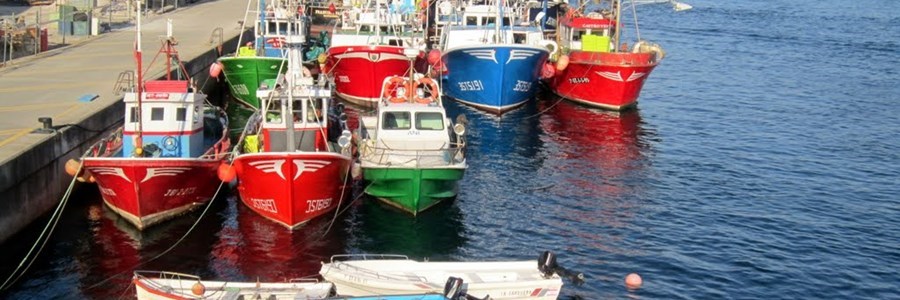Europêche rejette les accusations de Corporate Europe Observatory du faux lobbying

Un récent rapport publié par Corporate Europe Observatory (CEO) et Seas at Risk critique les représentants de l'industrie de la pêche pour avoir accédé à la salle de presse du bâtiment du Conseil de l'UE au cours des négociations de l'année écoulée sur les possibilités de pêche (ou les captures totales admissibles - TAC et quota) et accuse les ministres de pêches à adopter le niveau de TAC au-dessus des avis scientifiques en raison de l'influence du lobby de pêche.
Europêche, the European body representing the interest of fishermen and fishing vessel owners, considers that the report, "Fishing for Influence", trivializes the decision-making process of annually setting the fishing opportunities and accompanying fishing management measures by the Council of Fisheries Ministers. The article manipulates the interpretation of the scientific recommendations by the International Council for the Exploration of the Sea (ICES) in order to reach biased conclusions.
The reality is that, ICES offers several scenarios in its yearly advice to achieve Maximum Sustainable Yields (MSY) in 2017, 2018, 2019 or 2020. Moreover, ICES only takes into account biological considerations, whereas the Scientific, Technical and Economic Committee for Fisheries (STECF) includes a socioeconomic analysis in its advice. A third advice comes from the Advisory Councils in which both the industry and the NGO community come to shared advice to the European Commission (EC) and Member States.
On the basis of these three advices the EC formulates its proposal and the Council of Fisheries Ministers decides what scenario for every fishery is the best to guarantee a sustainable fishing activity from an environmental, social and economic point of view. This is all done respecting the objectives and rules laid down in the Common Fisheries Policy.
For this reason, according to the President of Europêche, Javier Garat, “the statement of these NGOs that the Council of Ministers establishes, every year, TACs above the scientific recommendations is simply false and manipulative”.
Furthermore, it is important to mention that the latest STECF report evidences positive trends in many fish stocks across Europe. According to this European Scientific body, the number of over-exploited stocks decreased from more than 70% to close to 40% over the last ten years. In addition, the report points out that the proportion of the assessed stocks outside safe biological limits follows the same decreasing trend: from 65% in 2003 to 38% in 2015.
According to Javier Garat, "the European fishing sector is the first interested in guaranteeing the sustainability of the fish resources and has, of course, every right to watch over the interests of an activity that employs 150,000 fishermen in the EU and which provides more than 15 billion healthy meals per year to the growing population.”
Europêche also rejects the accusation expressed by Corporate Europe Observatory (CEO) and Seas At Risk of exerting pressure illegally. Europêche’s registration in the transparency register of the EU and its social media posts clearly demonstrate that it is and will remain committed to openness and transparency in all its activities.
Regarding the presence of representatives of the fishing sector in the press room of the Council building during the meeting last December, Europêche recalls that its members have always respected access rules to the Council building and that these professionals collaborate with specialised media of the sector and assures that, unlike what is maliciously suggested by CEO in its report, have hardly any influence on politicians during the Council negotiations.
Europêche argues that fisheries remain an extremely complex policy area which involves a high degree of technical knowledge. An efficient and sustainable management of fisheries resources requires first-hand expertise on a wide range of different fisheries and stocks. As such, the December Council negotiations determine the framework for continued sustainable management of fish stocks and set the parameters for the livelihoods of thousands of fishermen across Europe.
According to Garat, "it is naive and ridiculous to think that the mere presence in the press room of the Council building can shape the final decision on TACs & quotas. They result from closed-door and rigorous negotiations between decision-makers and after a lengthy process of consultations with all stakeholders, including the industry and the NGO community, which last for months."
ENDS
Europêche represents the fisheries sector in Europe. Currently, the Association comprises 15 national organisations of fishing enterprises from the following 10 EU Member States: DE, DK, ES, FR, IT, MT, NL, LV, PL, UK.
Press contacts:
Daniel Voces, Acting Managing Director of Europêche: +32.2.230.48.48 daniel.voces@europeche.org
Sources: Europeche
Attachments:
Tags: CEO, Seas At Risk, Pêche pour l'influence, MSY, PCP